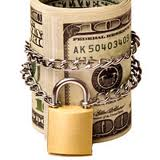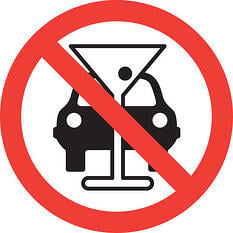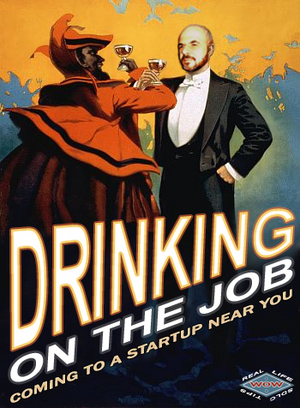Part 1: Recruiting a Security Staff
 Knowing when and how to recruit security staff is an important part of any popular bar operation. Should you hire your own or deal with a security firm? If you hire your own people, what rules do you set for them? How do you avoid getting sued if someone is removed forcibly? Many venues utilize outside security firms to provide security on busy nights, and most do so as a means of simplifying their security needs and reducing liability issues. But an outside contractor doesn't always make things easier:
Knowing when and how to recruit security staff is an important part of any popular bar operation. Should you hire your own or deal with a security firm? If you hire your own people, what rules do you set for them? How do you avoid getting sued if someone is removed forcibly? Many venues utilize outside security firms to provide security on busy nights, and most do so as a means of simplifying their security needs and reducing liability issues. But an outside contractor doesn't always make things easier:
- Outside contractors. This means you don't need to concern yourself with compensation, holidays, sick days, wages, etc. However, it also means that your level of control over the standard and selection of those who work at your venue is reduced. Also, with security firms costing more per hour than individual contractors or staff, your bottom line can suffer. Consider hiring one or two of your own staff who you can use on regularly busy nights and filling in any gaps with contractors that may come up.
- In-house employees. While harder to find, train, and do background checks on, they are usually more loyal and tend to stay longer than contractors. If you want to have complete control over how your security behaves, how they deal with customers and their loyalty to the company, there can be no better way to work than to simply employ the best people you can find.
- Security personnel. Hiring security and calling them independent contractors to avoid liability and payroll taxes is a tactic some bar operators employ to make the process simpler and cheaper. But this can bring more problems than it solves. If your security "contractor" does injure someone when removing him or her from the premises, are you confident that your "contractor" won't claim she is an employee? Do you need that kind of a fight?
- Rules. Security guards need ironclad rules of engagement that dictate what they can and cannot do. Ensure that rules are in place that every security employee knows and signs. So, if there is a liability problem down the road, you can point out that your rules were broken and that you were not in any way negligent in your duty of care to the client.
- ALWAYS do a background check on your potential security staff. It may cost a little and extend the hiring process, but if you don't want a 300-pound cocaine addict to be throwing your customers around a back alley, you'll want to make sure you're not hiring any 300-pound cocaine addicts.
- Attorney involvement. Talk to your lawyer about drawing up any and all papers you'll need to ensure that your organization is completely covered and doing everything it can to ensure your security staff behave responsibly. Spending a hundred bucks today on legal fees can save you thousands down the road. Similarly, check with your insurance company to confirm your legal liability responsibilities to your security staff.
- Subcontracting security staff is a legitimate means of filling a need. This works if you really don't have the time to micromanage your security concerns, or to fill in during times when your regular staff is unavailable or inadequate in number. You can subcontract individuals as long as you give them a Form 1099 for any cash paid over the $600 mark; this will, in turn, keep your workers' compensation bill down.
- Equip your security staff for their job. Spotting fake IDs isn't always easy. If you have 200 people waiting to go through your door, your security staff can't spend five minutes with every person, but there are tools available that can help. An electronic ID-checking unit will read the magnetic strip on any state driver license, verify that the license is valid, and display the holder's exact age - not to mention point out if the document is a fake or has been tampered with. These systems are small, inexpensive to purchase and limit the chance that your staff will let in an underage drinker. Talk to Intelli-Check (www.intellicheck.com) by calling 800 444-9542.
This article is an excerpt from the Food Service Professional Guide to Bar & Beverage Operation, authored by Chris Parry, published by Atlantic Publishing Company. This excerpt has been reprinted with permission of the publisher. To purchase this book go to:

 More often than not, scams and thievery can be detected and/or prevented relatively easily. Strict enforcement of all employee rules is a must and vigorous prosecution of any offenders is essential. Employees must be made clearly aware of the dire consequences of flouting the house rules - every detail must be addressed.
More often than not, scams and thievery can be detected and/or prevented relatively easily. Strict enforcement of all employee rules is a must and vigorous prosecution of any offenders is essential. Employees must be made clearly aware of the dire consequences of flouting the house rules - every detail must be addressed. Why do they do it? Your bar is a good place to work; you're a decent boss - you pay above-average wages - why does your staff feel the need to break the law? Put simply, human nature is to take something for nothing when the chance arises. An informed bar manager is in a far better position to fight losses from theft.
Why do they do it? Your bar is a good place to work; you're a decent boss - you pay above-average wages - why does your staff feel the need to break the law? Put simply, human nature is to take something for nothing when the chance arises. An informed bar manager is in a far better position to fight losses from theft.




